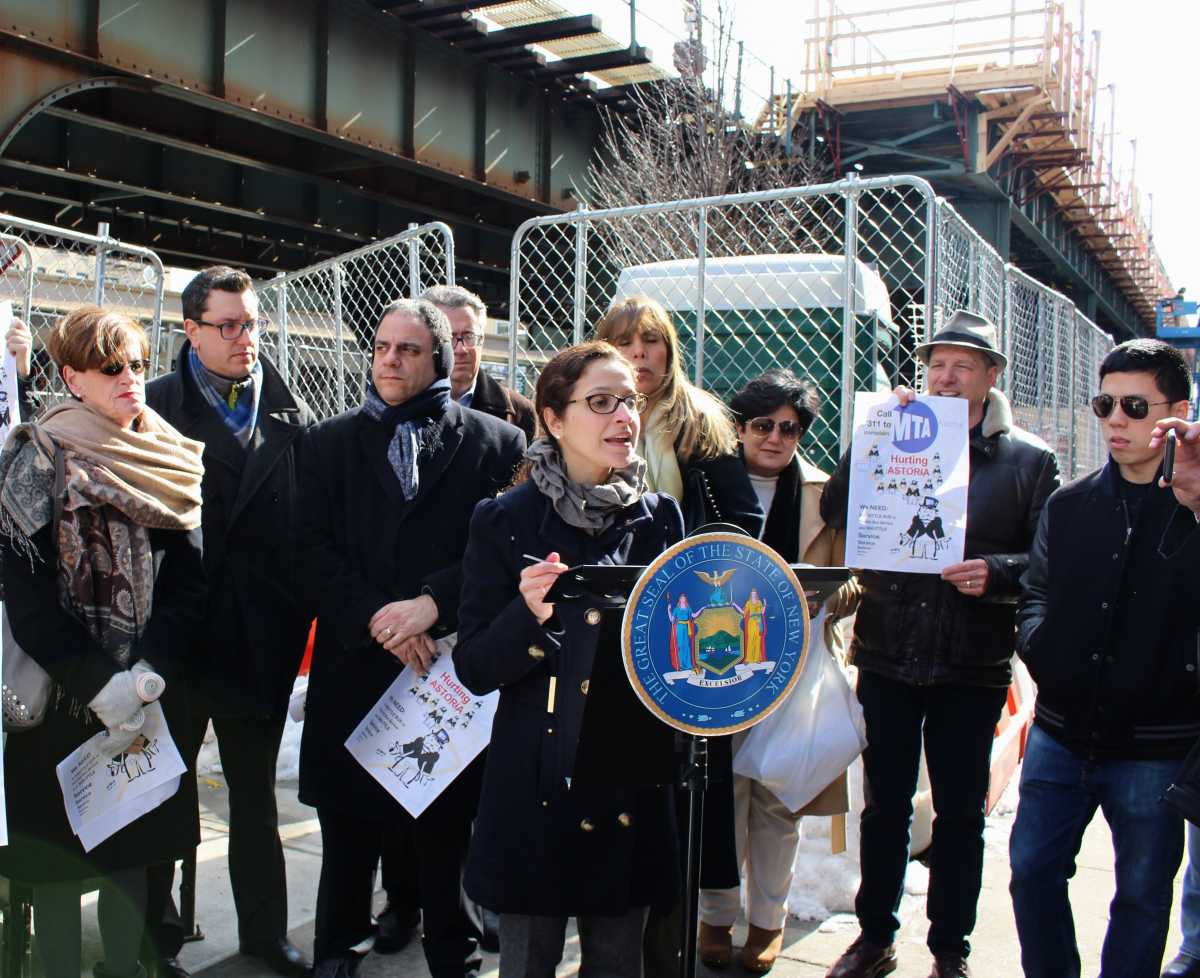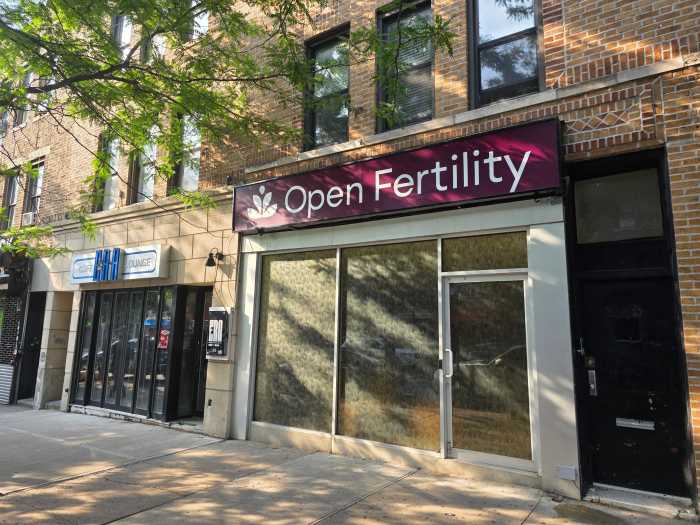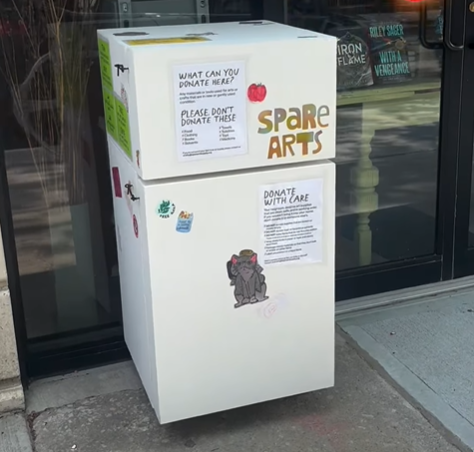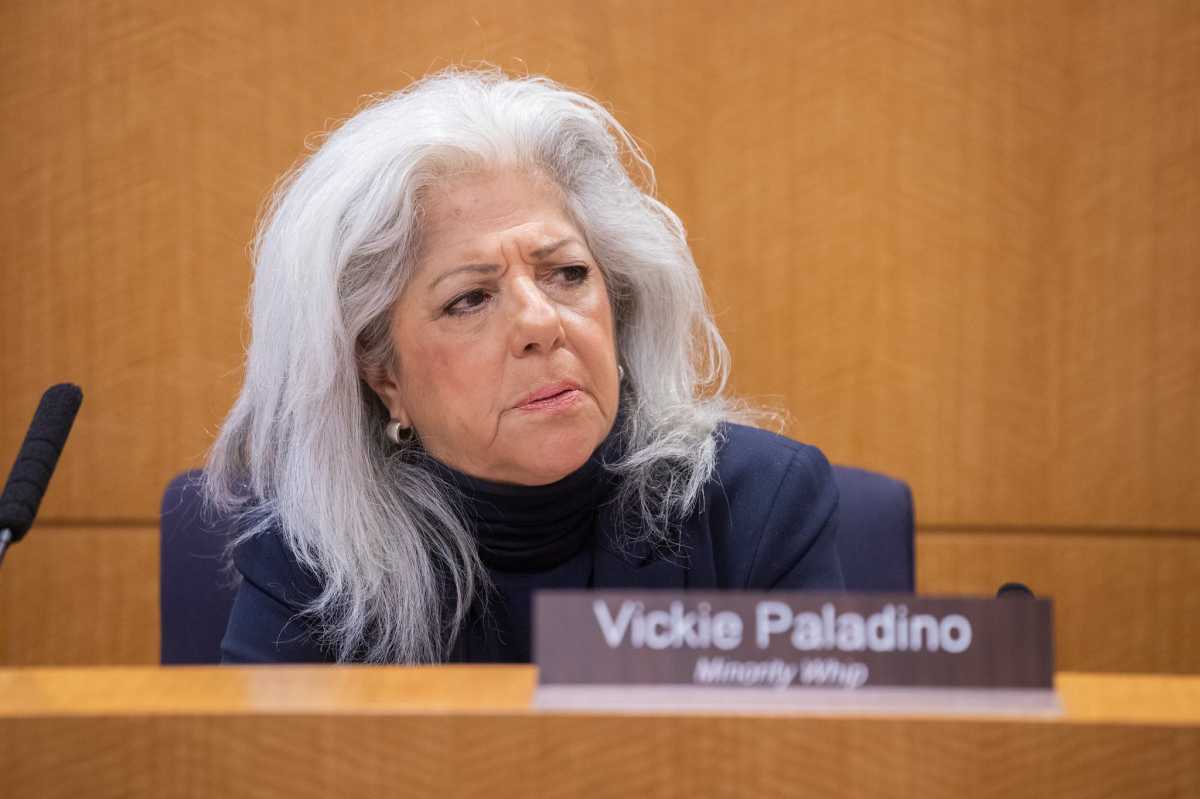In an effort to aid businesses on 30th Avenue in Astoria that have been negatively impacted by a subway construction project, Assemblywoman Aravella Simotas introduced new legislation to give shop owners a tax credit.
Simotas announced the bill at a press conference in front of Irish Whiskey Bar at 28-48 31st St. The bar’s owners, Barry and Liam O’Reilly, have expressed their frustration at the MTA’s handling of the project at the 30th Avenue N/W train stop.
Last October, crews began working on both the 30th Avenue and 36th Avenue stops to make structural repairs, add new and rehabilitated station entrances, improved mezzanines and platforms and other amenities like USB ports, digital screens and countdown clocks.
The project is expected to last until June but several business owners told QNS that they began to see a drop in business right away. Simotas helped to facilitate a meeting between owners and the MTA in November 2017 but the agency did not provide any solutions presented by shop owners like a shuttle bus, financial aid, or trying to speed up the timeline of the construction.
“It was sad because they pretty much just brought us all together to tell us how they’re going to screw our businesses,” Sharhaj Khan, who runs Astoria Wireless at 28-60 31st St. told QNS. “They had no solution. They weren’t even willing to negotiate. Without saying it directly they just said, ‘Get over it.’”
Simotas’ bill, which was officially introduced on March 7, would provide small businesses with an income tax and franchise tax credit to cover 100 percent of their lost income due to state or local infrastructure projects. The credits would be applied retroactively to affected business as of Jan. 1, 2018.
A small business is independently owned and operated and has 100 or fewer full-time employees. They would be eligible for the tax credits if they suffer a financial loss of at least 25 percent of projected revenue as a result of an infrastructure project.
“I cannot sit still while small businesses become sacrifices on the altar of subway maintenance work and renovations,” Simotas said. “My bill will strike a balance so that the costs of achieving a common good stemming from infrastructure projects are shared and not borne solely by a struggling small business sector. Astoria’s merchants, small shops and restaurants are absolutely essential to the life of our community, giving the neighborhood its vibrancy and its character. These businesses must survive.”
In June, the 39th Avenue and Broadway stations along the N/W line will close for similar renovations. Next month, the MTA will begin making upgrades to the Ditmars Boulevard station but will not close down the station.
Frank Arcabascio, the acting director of the 30th Avenue Business Association and owner of Redken Saloon Salon, said this tax credit would be “a huge help and for some Astoria businesses it may be their only shot at survival.”
“The eight-month shutdown of the 30th Avenue train station is crippling our businesses, with my losses now at nearly 30 percent,” he said. “We’ve put up with Con Edison repairs countless times but those disruptions last between two to four weeks. What the MTA has done is to devastate this business corridor with an eight-month disruption and that should be illegal.”
Astoria’s elected officials, including Congressman Joseph Crowley, Councilman Costa Constantinides and state Senator Michael Gianaris threw their support behind the legislation.
Simotas said she will look for a Senate sponsor for the bill when she gets back to Albany on Monday.
“This is not just an issue affecting western Queens because subway station repair plans will have detrimental consequences for neighborhoods throughout the city,” she said.



































